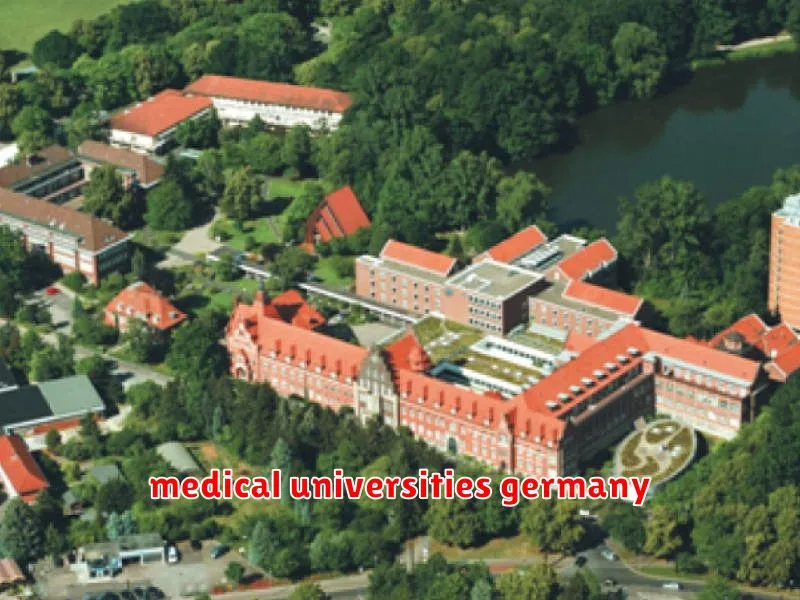Are you dreaming of a medical career in a world-renowned setting? Look no further than Germany! This article highlights 8 leading medical universities in Germany that stand out for their exceptional research, cutting-edge facilities, and globally recognized medical programs. Discover the top institutions offering top-notch medical education and propel your aspirations to the next level. Prepare to explore the best options for your future in medicine in Germany!
Charité – Universitätsmedizin Berlin

Charité – Universitätsmedizin Berlin is one of Europe’s largest and most renowned university hospitals. Its history stretches back centuries, contributing significantly to medical advancements. The institution boasts a strong focus on research and teaching, consistently ranking among the top medical universities globally.
Key strengths include its diverse range of medical disciplines, cutting-edge research facilities, and a highly accomplished faculty. Students benefit from a rigorous academic environment and access to state-of-the-art technology. Charité’s collaborative approach fosters innovation and interdisciplinary research projects, driving medical progress.
The university’s global reputation attracts students and researchers from around the world, fostering a vibrant and international learning community. Graduates from Charité are highly sought after for their expertise and skills, making it a premier choice for aspiring medical professionals.
Research excellence is a cornerstone of Charité’s identity. Significant breakthroughs in various medical fields, from cancer research to neurology, regularly emerge from its labs and clinics. This commitment to pushing the boundaries of medical knowledge positions Charité as a leading force in shaping the future of healthcare.
Ludwig Maximilian University of Munich

The Ludwig Maximilian University of Munich (LMU) is a powerhouse in German medical education, consistently ranking among the nation’s best. Its medical school, founded in 1472, boasts a rich history and a commitment to cutting-edge research.
LMU’s medical program is highly competitive, attracting top students from Germany and abroad. The curriculum emphasizes a strong foundation in basic sciences, complemented by extensive clinical training at affiliated hospitals, including the renowned University Hospital Munich (LMU Klinikum).
Students benefit from access to state-of-the-art facilities and the opportunity to work alongside leading researchers in various medical specialties. The university’s strong international collaborations also provide students with global perspectives and opportunities for exchange programs.
Graduates of LMU’s medical program are highly sought after by hospitals and research institutions worldwide, testament to the quality of education and training provided. Its emphasis on both theoretical knowledge and practical skills prepares students for successful careers in a rapidly evolving medical landscape.
University of Heidelberg
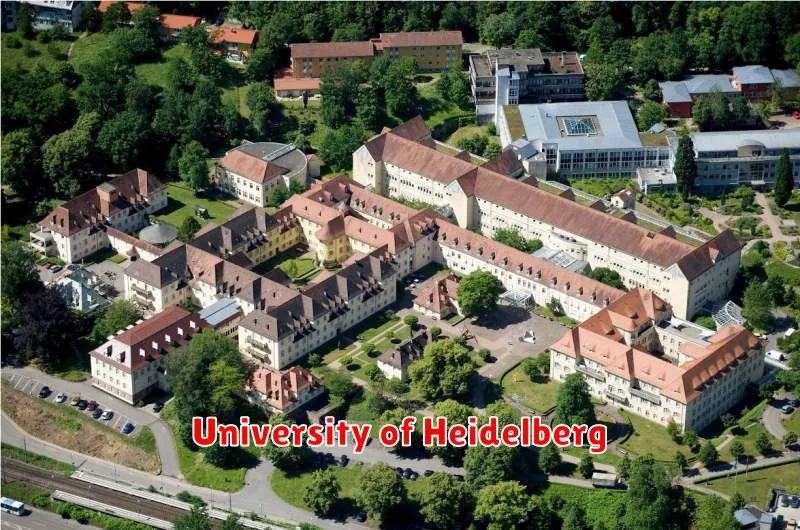
The University of Heidelberg, founded in 1386, holds a prestigious position as one of Germany’s oldest and most renowned universities. Its medical school, specifically, boasts a long and impactful history, contributing significantly to advancements in medicine.
Key Strengths include its internationally recognized research in various medical fields, a strong emphasis on interdisciplinary collaboration, and a diverse, highly qualified faculty. Students benefit from state-of-the-art facilities and a vibrant learning environment. The university’s global network facilitates international collaborations and exchange opportunities.
Research Focus Areas within the medical faculty encompass a broad range, from oncology and cardiology to neurology and infectious diseases. The university consistently attracts substantial research funding, allowing for cutting-edge research projects and technological advancements.
Graduates from the University of Heidelberg’s medical program are highly sought after globally, securing positions in leading hospitals and research institutions worldwide. The university’s commitment to excellence ensures its continued standing among Germany’s leading medical universities.
Technical University of Munich
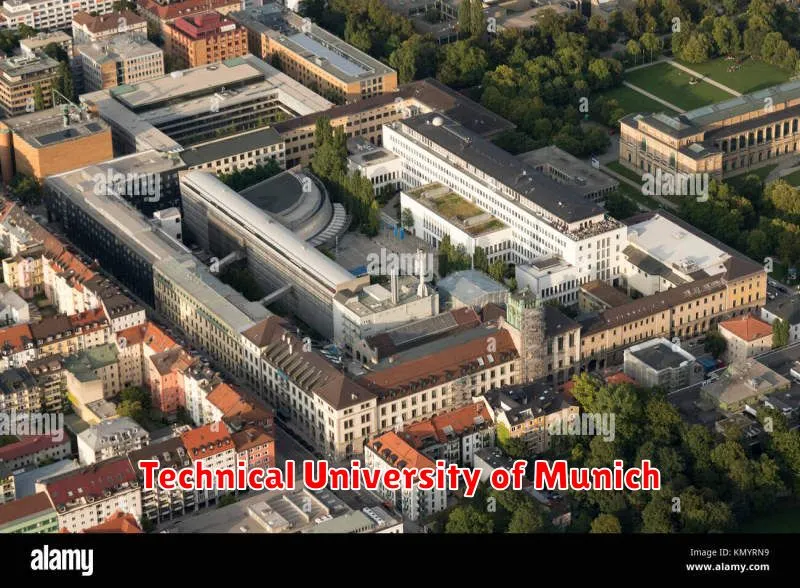
While not solely focused on medicine, the Technical University of Munich (TUM) stands out among German universities for its exceptional contributions to the biomedical field. Its strength lies in its strong interdisciplinary approach, combining engineering, science, and medicine to drive innovation.
TUM boasts several renowned research institutes and departments dedicated to biomedical engineering, bioinformatics, and related areas. This allows for cutting-edge research in areas such as medical imaging, biomaterials, and biotechnology. The university also offers strong collaborations with leading hospitals and research institutions, creating a vibrant environment for medical advancement.
Students benefit from a rigorous curriculum and opportunities to work on impactful projects alongside leading researchers. The focus on technology and innovation makes TUM a unique choice for students interested in the technological aspects of medicine and healthcare.
RWTH Aachen University

RWTH Aachen University is a highly regarded public university renowned for its strong focus on science and technology, including a significant presence in medical fields. While not solely a medical university like some others on this list, its medical programs are exceptionally strong. Its integrated approach, combining engineering, natural sciences, and medicine, fosters innovative research and interdisciplinary collaborations.
The university boasts state-of-the-art facilities and a commitment to practical application of knowledge. Students benefit from a strong emphasis on hands-on learning and close interaction with leading researchers. Specific strengths lie in areas like biomedical engineering, bioinformatics, and neurosciences, where the university consistently produces impactful research and well-prepared graduates.
Choosing RWTH Aachen means opting for a rigorous, technology-driven education within a vibrant academic community. The university’s location in Aachen, a city with a rich history and strong industrial connections, further enhances the learning experience, providing opportunities for internships and industry collaborations.
University of Freiburg

The University of Freiburg, founded in 1457, boasts a rich history and a strong reputation in medical research and education. Its medical faculty is consistently ranked among the best in Germany, attracting both domestic and international students.
Key strengths of the University of Freiburg’s medical program include its focus on cutting-edge research in areas such as oncology, neuroscience, and immunology. The university also emphasizes a strong clinical component, providing students with extensive hands-on experience in its affiliated hospitals.
Students benefit from a collaborative learning environment fostered by experienced faculty and state-of-the-art facilities. The university’s commitment to interdisciplinary research further enriches the learning experience, allowing students to explore the complexities of modern medicine from multiple perspectives.
Graduates from the University of Freiburg’s medical program are highly sought after by hospitals and research institutions worldwide, reflecting the high quality of education and training offered.
University of Tübingen
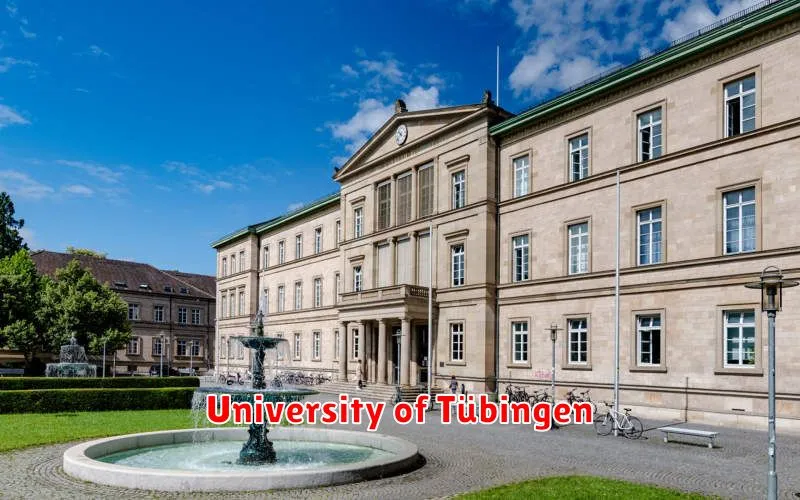
The University of Tübingen, founded in 1477, boasts a rich history and a strong reputation in medical research and education. It consistently ranks among Germany’s top medical universities.
Its medical faculty is renowned for its excellence across various disciplines, including interventional cardiology, neurology, and oncology. Students benefit from a strong emphasis on practical training and close collaboration with leading hospitals.
The university’s commitment to innovative research is evident in its numerous collaborations with other research institutions and its contributions to advancements in medical technology and treatments. Cutting-edge facilities and a highly qualified faculty contribute to its outstanding reputation.
Graduates from the University of Tübingen’s medical program are highly sought after, both domestically and internationally, for their strong theoretical and practical foundation in medicine.
University of Göttingen
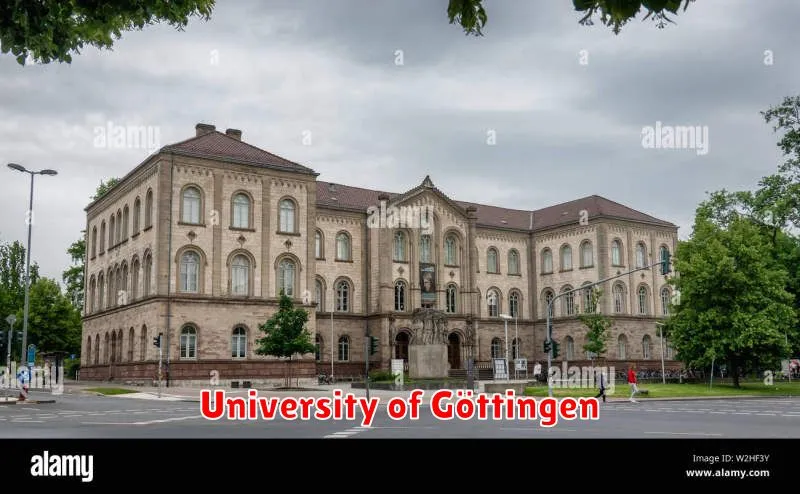
The University of Göttingen, founded in 1737, boasts a rich history and a strong reputation in medical research and education. Its Georg-August-Universität Göttingen is renowned for its contributions to various medical fields.
Key strengths include its comprehensive medical programs, extensive research facilities, and a vibrant academic community. The university consistently ranks highly in national and international rankings, attracting top students and faculty from around the globe. Göttingen’s location also offers a high quality of life for its students.
Students benefit from a strong emphasis on practical training and opportunities for international collaborations. The university’s commitment to interdisciplinary research further enhances the learning experience, preparing graduates for successful careers in medicine and related fields. The university’s strong focus on basic and translational research results in significant advancements in medicine.

